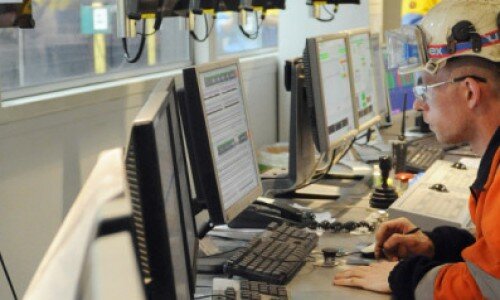
Millennials need HS2
Benjamin Mulvihill reasons while speed, time and capacity are important, the greatest argument for HS2 is through its generational legacy.
There’s something the silverbacks complaining about HS2 need to realise: HS2 isn’t actually for you. For the first time in the post-war period, the (that’s ‘46-’64 if you’re unsure) and Generation X (’60-‘80) . HS2 is one of the few silver linings for the .
For the young, the 21st century is not going well. Take the youth unemployment crisis across the and , or look at the rising costs of tuition fees. ‘ and the piralling upwards. Meanwhile, our society is while it . Not to mention the for.
HS2 is not a perfect proposition, nor a panacea for these ailments – large infrastructure projects never have been. HS2 will inevitably be bedevilled by increasing costs, delays and the benefits of its economic case are right to be tested. But all in all, it is one of the few efforts made by the current elder generation in power to alleviate the burden currently placed on the young.
Even if the exact nature of HS2’s outcomes can be challenged, its most vociferous opponents must concede that undertaking an infrastructure project of this size will produce a significant amount of jobs, provide stimulus to the regions and help regenerate city centres across the country – the scope can be questioned but the facts cannot be denied.
HS2′s outcomes, regardless of scale, could serve to benefit today’s embattled youth the most, particularly through jobs and training. For example, by linking public contracts to apprenticeships, HS2 could directly help stem rising youth unemployment and the skills deficit we currently face.
Opponents argue the price tag is simply not mitigated by these ‘unsubstantiated’ benefits: . This completely misrepresents the nature of infrastructure investment. The expenditure has to be divided by not only the current population, but also the approximate 2,000 citizens born everyday from now until HS2 is decommissioned in order to ascertain the true contribution per person.
Moreover, the complaints about how long it will take for HS2 to be ready in order to get a return on the money is misleading. Firstly, the 14 year wait is hardly a great amount of time for the decades of service HS2 will provide in return. But that aside, as soon as we start building HS2 we begin to see it’s effect.
Viewed in it’s true context, the cost-benefit analysis of the £50 billion we will spend over HS2′s full lifetime is altered considerably: its peanuts.
But HS2 is important not only by how it will benefit us in the here and now or even the next 20 years. The critical test will be how it will affect future generations across the next century and beyond. It is something we can never truly appreciate in its entirety from an early 21st century perspective: very few of us now will know for sure whether HS2 will be worth it in the end. But as I glance at Curzon Street Station, boarded up, battered and forsaken, it strikes me;
“A society grows great when old men plant trees whose shade they know they shall never sit in.”
The best argument for HS2 is in how it will help to leave a regenerated Britain, and particularly Birmingham, for generations to come, and that is how the case should be framed. Against the naysayers and cautious commentators, supporters should place a reborn Curzon Street, a reinvigorated Euston and a revitalized Manchester Piccadilly. The generational case has largely been ignored or poorly made, and the idea of ‘legacy’ has had somewhat sketchy press since the Olympics, but it should be embraced.
The opposition is understandable: people’s lives will be affected by rail tracks cutting across the country. While we can sympathise with their plight, we should not give those voices disproportionate weight. They are promoting the creeping doubts and pitfalls of all infrastructure projects to justify their attempts to halt these particular plans. But this is no simple ‘’ of mothers and fathers out there: the cost of doing nothing will result in a significant proportion (the young in the main) of the population losing out on the promise of jobs, training and regeneration.
It’s time to be bold. Supporters should be combatting the discontent and hesitation spread by the ‘No to HS2′ campaign et al by vigorously putting forward the generational case: while speed, time or capacity are important, the greatest advantage of HS2 is through its legacy. Firstly, through the legacy of the immediate creation of jobs and skills, and secondly, through the legacy of the economic regeneration of tracks, trains, stations and even cities. We cannot allow the objections of a few to outweigh the benefits for the many and allow them to pull the rug from under the young.
Forget class warfare, this is generational warfare.
Benjamin Mulvihill is Research Assistant at RJF Public Affairs. He writes here in a personal capacity.
Published as part of:
Similar Articles
Key Conservatives on-board with HS2 1
In his keynote speech to the Conservative Conference in Manchester, David Cameron has backed HS2,
Sorry rail buffs: Great British Public will always believe HS2 is a colossal waste of money
There was no doubting the gold-plated credentials of speakers at the Greengauge 21 HS2 conference
Birmingham New Street commuters face chaos if HS2 isn’t built, warns Network Rail
Network Rail has renewed its campaign for HS2 by warning that failure to build a









